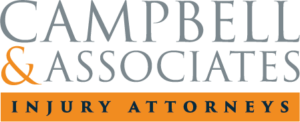Call Today
704-333-0885
What You Should Do After a Boating Accident
Spending time with friends and family out on the water is a popular way to kick back and enjoy the beautiful Carolina weather. It’s hard not to turn the whole experience into a party. But the fun stops when someone gets hurt, and that is a risk each person takes when climbing aboard a vessel.
Boating accidents happen for a variety of different reasons, and many of those accidents result in injury or even death. Coast Guard reports counted more than 4,000 boating accidents in 2013; 560 of those were fatal, and 2,620 resulted in injuries. The accidents were costly, as well, with combined damages of $39 million to the boats or other property.
Responsibilities of Boat Operators
Just as car drivers are responsible for maintaining the safety of persons riding in their cars, a boat operator takes on a similar responsibility on a boat. The boat needs to be mechanically sound and safe to take out in open water. In addition to driving safely and responsibly, a boat operator also needs to make sure that the vessel is equipped with the necessary safety equipment before heading out on the water. This means there must be life jackets available for all passengers. The vast majority of boating accidents that result in serious injury or death happen to people who are not wearing life jackets. Boat operators also should have other safety equipment, including life rings to throw to passengers who have fallen off the boat, flares, a whistle and a fire extinguisher. They should also be in tune with weather expectations and their own limits as capable sailors, and they should not set out into something they aren’t confident they can handle.
What to Do If an Accident Happens
- Tend to medical needs. Medical needs come first, whether they are cuts and scrapes or you need to get someone back into the boat who has fallen into the water. If a rescue is beyond your capabilities, signal for help. When the people on your own vessel are tended to, check with any other boats that were involved to make sure everyone is OK.
- Contact the Coast Guard. In most cases, the U.S. Coast Guard should be notified. Move the boat off to the side away from other traffic, if possible. Once the Coast Guard arrives, a report should be filed. Federal law requires this if someone has been killed or has an injury where more than basic first aid is needed. The Coast Guard also needs to know if the boat or any property on the boat is damaged, if that damage is valued at $2,000 or more, if the vessel has been lost or destroyed, or if there is any person or vessel missing that would cause suspicion of a death or injury.
- Take notes. While waiting for the Coast Guard, gather as much information about the accident as possible, and write down contact information for the boat operators involved as well as passengers and witnesses on shore. Get the registration and ID of vessels that were involved in the accident. Photos can also be taken to show damages or injuries. Any information you can provide can help your personal injury attorney build a stronger case.
- See a doctor. When the dust settles, it is important to have a doctor look you over for any injuries you might not have noticed during the accident or its immediate aftermath. In many cases, people feel OK initially because the stress of the situation causes their adrenaline to kick in. As they settle back to their normal routine, the pain starts. Seeing a doctor gets you a professional opinion right away that can be more easily tied to the accident.
Things Not to Do
- Don’t incriminate yourself. When people around you are injured, it is hard not to apologize, but for your own sake, you need to hold off on saying anything. Even if you suspect the accident was your fault, an investigation might bring up variables that you did not notice at the time.
- Cash a settlement check. You’ll want to let your insurance company know about your accident after you talk to a lawyer, but if you are offered a settlement check don’t cash it.
Contact an injury attorney at Campbell and Associates for a free consultation in six convenient offices in North and South Carolina. We can dig beyond the immediate costs of medical bills and boat repair, and show where compensation is needed and deserved to cover lost wages, reduction in future earning potential, emotional distress, and pain and suffering. We’ll see that all these variables are considered when deciding on your final settlement.
Image Source: Flickr
FREE AND CONFIDENTIAL CASE REVIEW
We want to hear your story, so we can help.
Call Today
704-333-0885



Membership in the Million Dollar Advocates Forum is limited to attorneys who have won million and multi-million dollar verdicts and settlements. You can find the criteria for membership in the Million Dollar Advocates by clicking here. Campbell & Associates Personal Injury Firm does not represent or claim that similar results will be achieved in your case.
The National Trial Lawyers is a national organization composed of the Top 100 Trial Lawyers from each state. Membership to the organization is obtained through special invitation and is extended only to those attorneys who exemplify superior qualifications, leadership, reputation, influence, stature, and profile as trial lawyers, both civil plaintiff and criminal defense. For more information on the National Trial Lawyers organization click here. Campbell & Associates Personal Injury Firm does not represent or claim that similar results will be achieved in your case.


